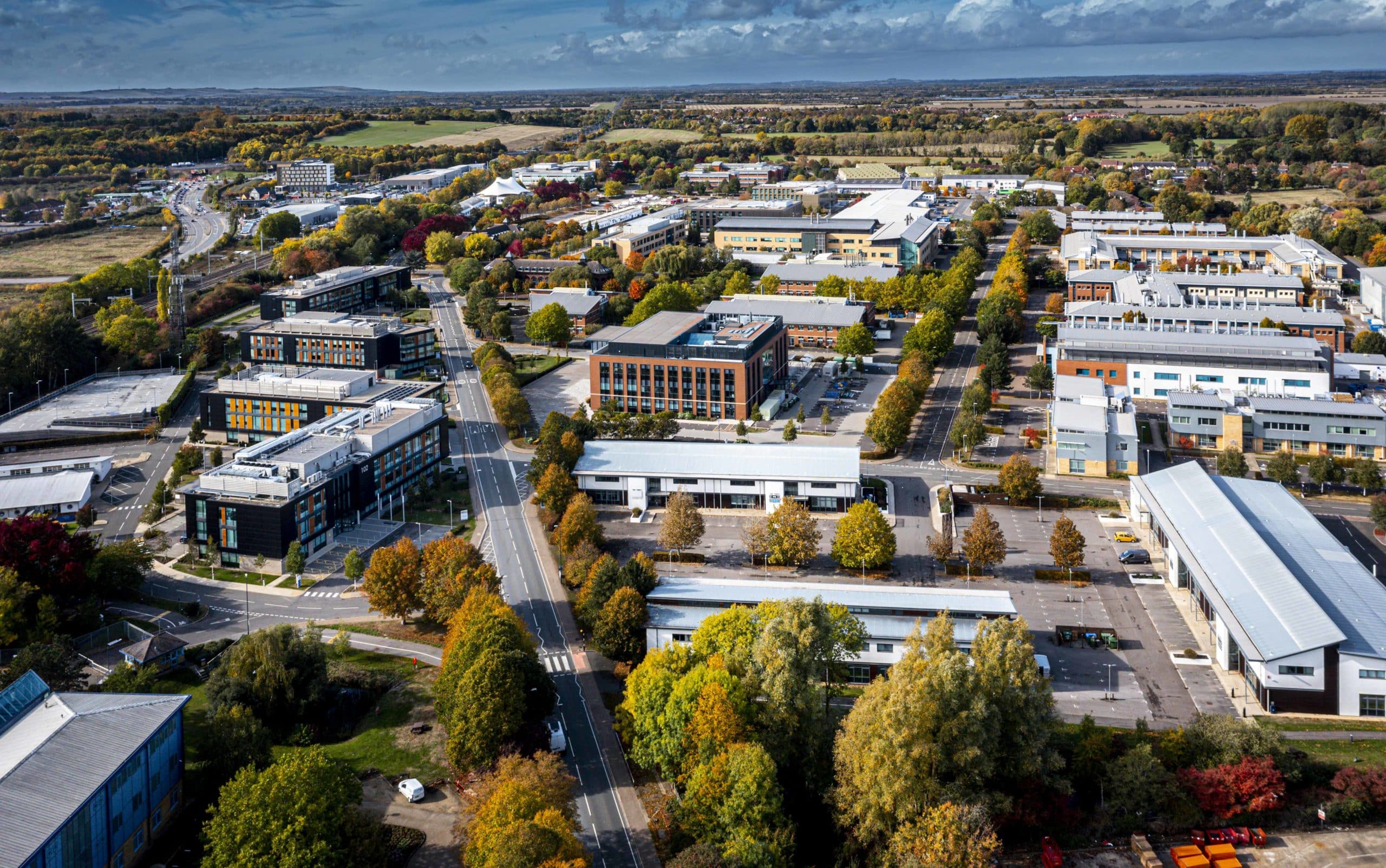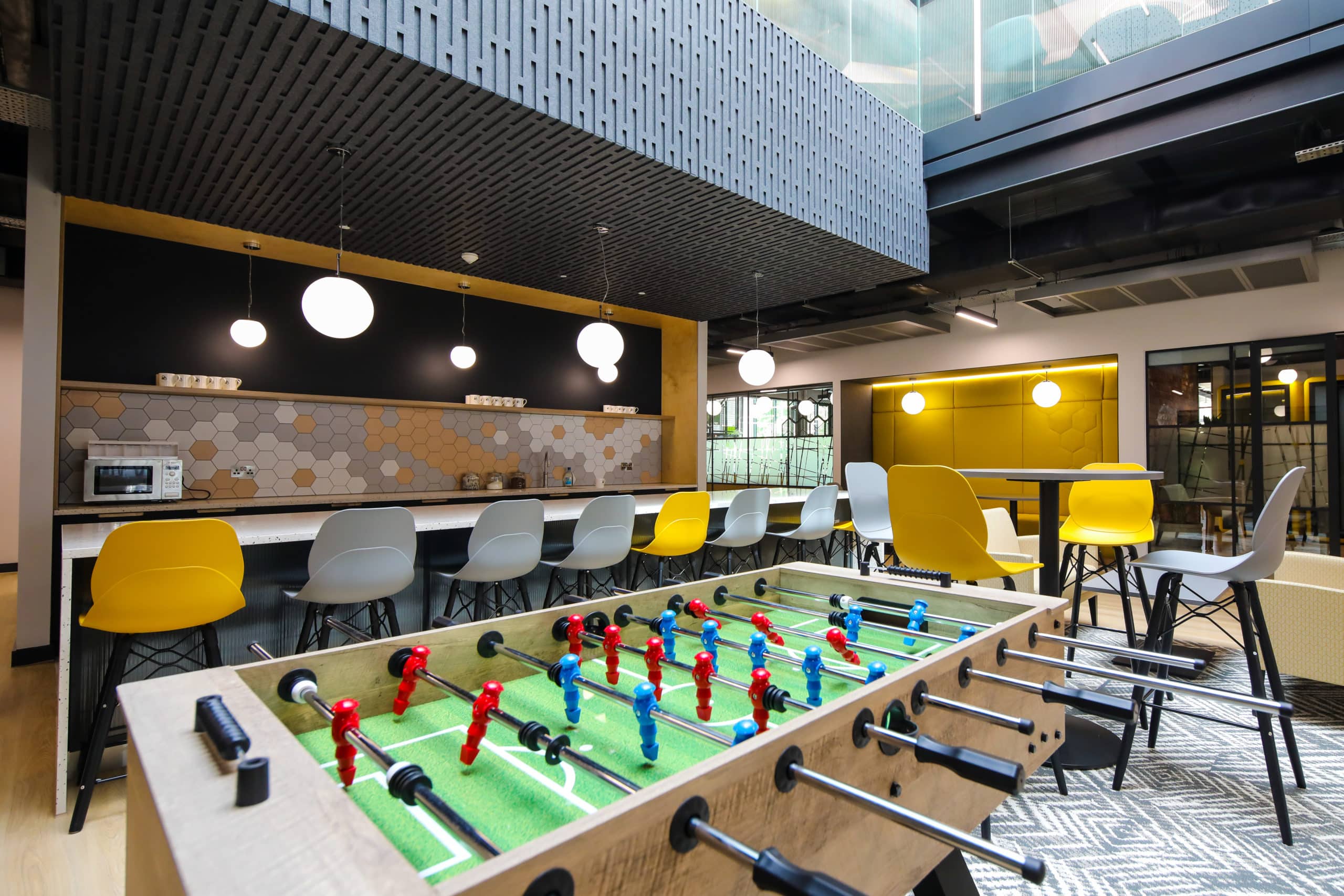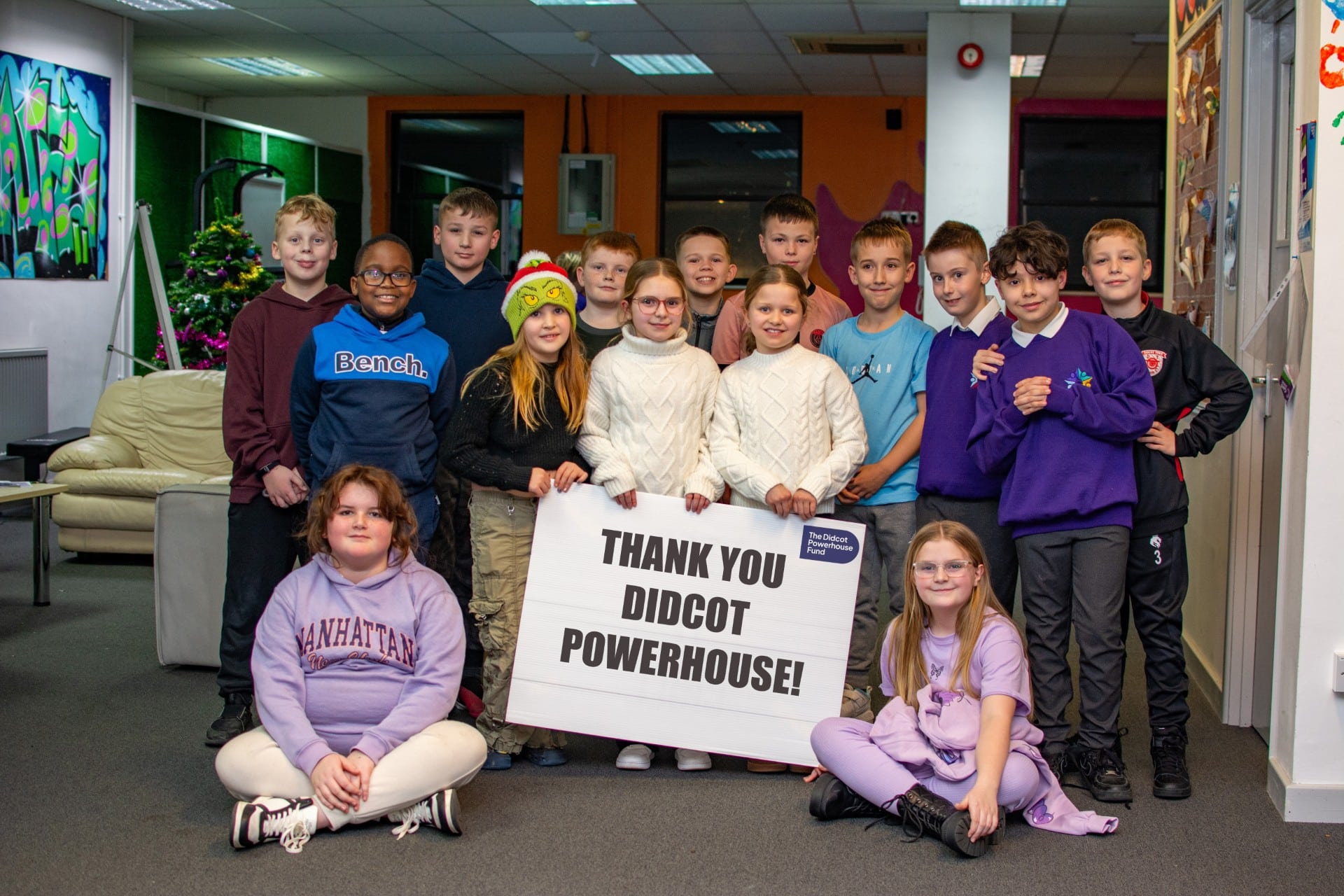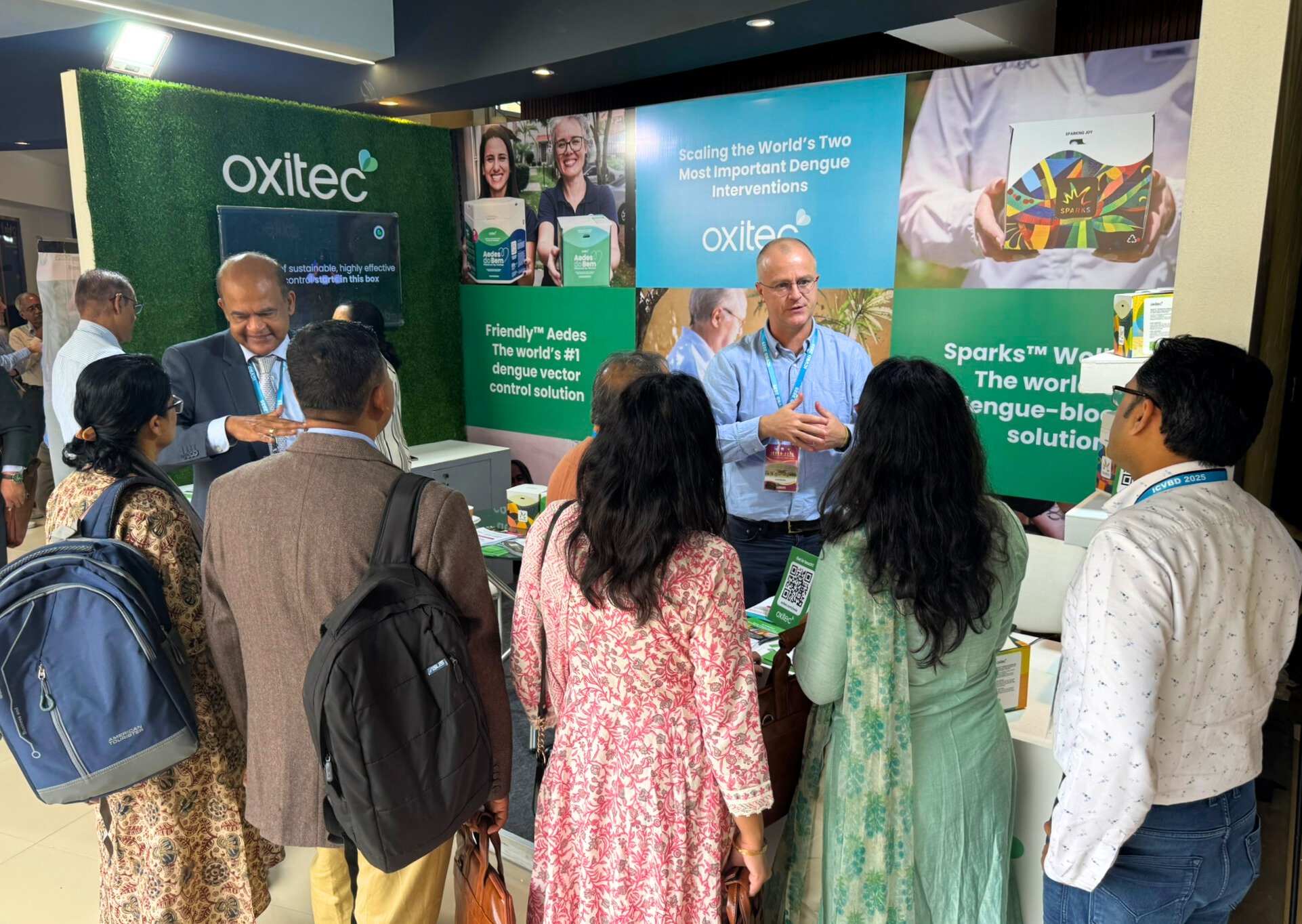Park People: Simon Canter, Evotec
Published on 9 April 2025
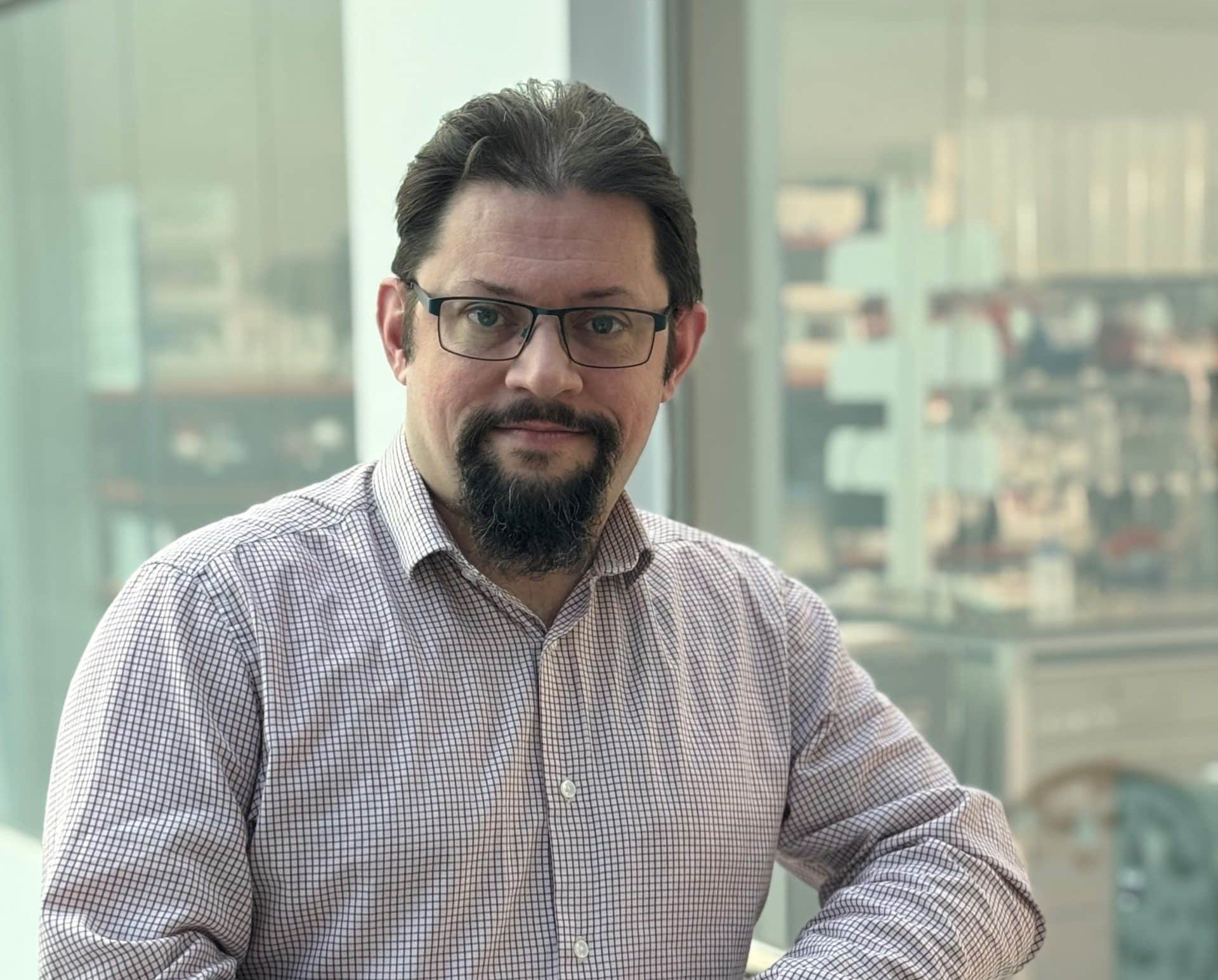
In this month’s Park People, the Milton Park team meets scientist-turned-Training Officer at Evotec, Simon Canter. From training and sustainability to 3D printing, Simon shares more about his varied role and why he’s on a mission to make Milton Park the first science cluster to close the loop on single-use laboratory plastics.
Hi Simon! Please tell us a bit about Evotec…
Evotec is a life science company with a unique business model focused on providing access to highly effective new therapeutics. At Evotec, we address unmet medical needs through scientific collaboration and partnerships. The aim is to align patient healthcare needs with industry research and development demands, innovating to transform lives.
One of the companies that merged to form Evotec originally started right here in Milton Park under the name Oxford Asymmetry.
What inspired you to pursue a career in the drug research industry?
I’ve always been drawn to the life science industry, but my real motivation to work in healthcare comes from my personal experiences having seen important people in my life taken far too early.
Supporting my father who suffered a serve stroke also showed me firsthand the impact that therapeutics can have. I’m glad to say that thanks to the healthcare my father was afforded, he is now thriving as a Stroke Ambassador for Wales.
Can you tell us more about your current role in Training, Sustainability, EDI and Operations?
My official title is Training Officer and that remains my core focus. At Evotec, our greatest strength is the talented and driven individuals we have on board. Approaches to formal training and personal development have evolved significantly over the past decade and we’re integrating new practices into our systems to create the best possible employment experience.
Aside from this, I’m a bit of a wildcard. I tackle safety issues, lead sustainability initiatives, advise on equality, diversity and inclusion (EDI) and even design and 3D print bespoke fixtures for my department. Essentially, I’ll do anything the scientists may not have time to do!
What motivated your transition from lab-based roles to your current position?
I started out as a chromatographer, but an opportunity arose to spend some time in a lab admin role. I loved making the lab and wider workplace a better place to work for my colleagues, so I made the decision to stay in the laboratory but step away from the bench! Twelve years later, I’m now considered a specialist in these areas.
What do you enjoy most about your work?
Being there for my colleagues. I get approached on a wide range of subjects by the scientists, upper management and other departments. They know I’m there for them if there’s an obstacle or concern.
Do you have a standout moment or career highlight?
There are many rewarding moments and victories, so I think it would be a discredit to choose just one, but I will say, almost all of them involved making others’ experience of a life science career better.
What are the biggest challenges in making drug research more sustainable?
The biggest sustainability challenge in drug research is you cannot measure it solely in carbon dioxide equivalent (CO2e). There are a lot of potential environmental impacts we can miss by releasing chemical or biological elements into the soil, water and air.
Typical sustainability consultants will follow the carbon, whereas my sustainable champions and I throughout Milton Park investigate initiatives that are often missed. I could give you a lecture about borosilicate glass, that many consultants would not even have thought to consider the carbon implications of.
Are there any exciting projects or initiatives you’re currently working on?
I’m currently working on a large project outside of Evotec with LabCycle and Milton Park’s Sustainability & Community Manager Veronica Reynolds, to bring single-use laboratory plastic recycling to the Park. My ambition for Evotec and every other occupier is to make Milton Park the first place to ‘close the loop’ on this difficult to handle, laboratory waste.
I’m also excited that, following my suggestion at the Greener Workplace Forum, Milton Park will soon be opening a polystyrene mill, which will grind up this tricky material so that it can be recycled.
I’m grateful that the other occupiers have been eager to collaborate for a Park-wide solution.
What do you enjoy about being based at Milton Park?
I’ve been based at Milton Park for 18 years, so I’ve seen many improvements in that time and know of many to come. The attitude of Milton Park’s team has always been to provide what we need and evolve with our input. It’s a winning combination!
Most recently, we’ve seen a surge in the networking and social provisions on the Park, from the ‘Fika’ sessions which provide coffees and pastries to initiatives like the recent Evotec-sponsored event for International Day of Women and Girls in Science.
I’ve had the best Milton Park experience by being involved and I would recommend to anyone reading this to do the same.

